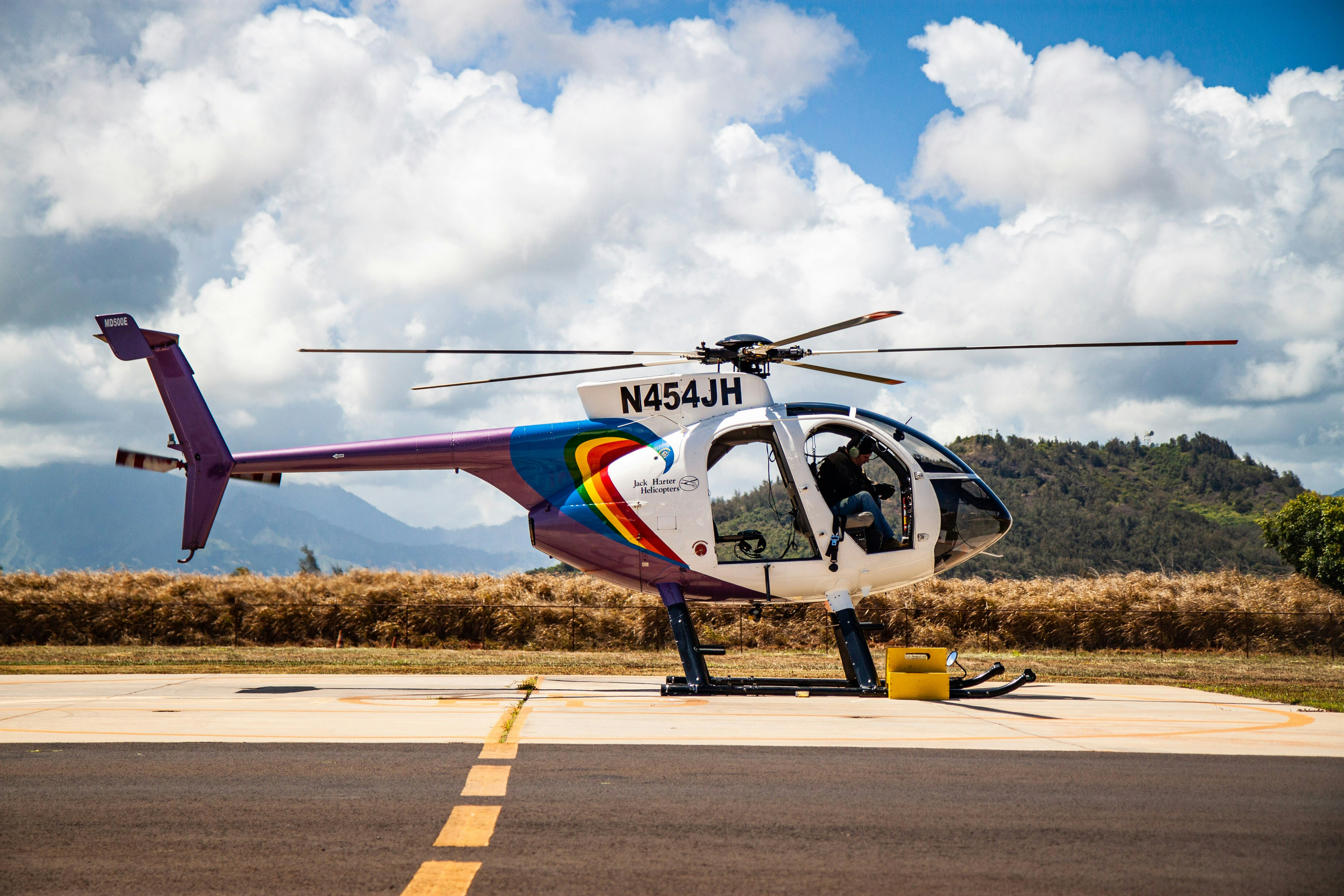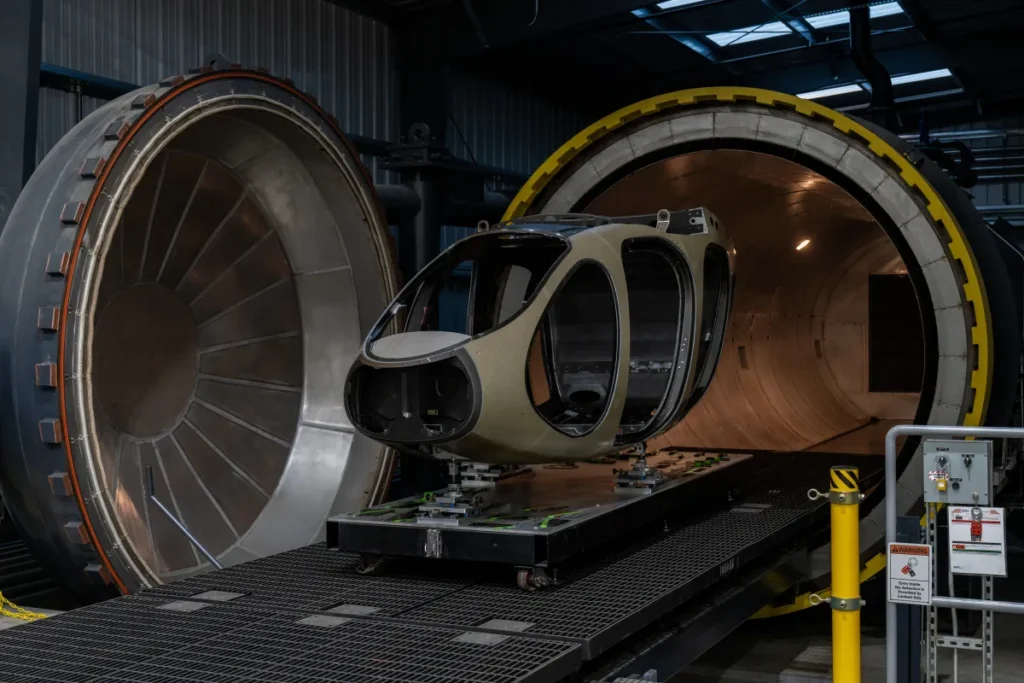
Overview of Joby Aviation’s Expansion
Joby Aviation has recently undertaken a significant expansion of its pilot manufacturing facility located in Marina, California. This move is a crucial step in the company’s strategy to enhance its production capabilities as it races toward the launch of its electric vertical takeoff and landing (eVTOL) aircraft designed for air taxi services. The newly expanded facility will double its previous capacity, allowing Joby Aviation to increase its output significantly and streamline its manufacturing processes.
The expansion underscores Joby’s commitment to leading the eVTOL market, particularly in the budding air taxi sector. With the aviation industry rapidly evolving, the company recognizes the importance of not only developing innovative technology but also scaling manufacturing to meet anticipated demand. The facility now covers a larger operational footprint, facilitating the installation of advanced manufacturing equipment and processes that can support the production of multiple prototype eVTOL vehicles simultaneously.
This strategic expansion aligns with Joby Aviation’s long-term objectives to achieve certification for its aircraft and to roll out commercial operations. As part of its ongoing development efforts, Joby is focusing on optimizing production timelines while ensuring that quality and safety remain at the forefront of its manufacturing operations. By doubling the facility’s capacity, Joby can respond more adeptly to the increasing interest and investment in urban air mobility solutions.
Furthermore, this expansion serves to bolster the company’s competitive position in the aerospace industry, as other firms are also vying for a share of the air taxi market. As cities around the world explore sustainable transportation options, Joby Aviation’s proactive steps in enhancing its production capabilities will be critical in meeting future demands and establishing a strong foothold in this innovative sector.
Production Capacity and Operational Goals
Joby Aviation has recently expanded its pilot eVTOL facility, significantly enhancing its production capacity and operational goals as it seeks to launch air taxi services in the near future. With this expansion, the company aims to achieve an impressive output of 24 electric vertical takeoff and landing (eVTOL) aircraft per year. This ambitious production target is geared towards meeting the growing demand for urban air mobility solutions as cities worldwide seek innovative transportation options to alleviate congestion and reduce travel times.
To reach this production goal, Joby Aviation intends to implement advanced manufacturing techniques and optimize supply chain logistics, ensuring that each aircraft can be produced efficiently without compromising quality. By investing in technology and workforce training, the company aims to streamline its operations, ultimately allowing it to scale production up to the desired levels while adhering to safety and regulatory standards.
The timeline for achieving full operational capacity is crucial for Joby Aviation, as it positions itself at the forefront of the air taxi industry. With plans to commence commercial operations in the coming years, the company is racing against time. Achieving production levels will not only facilitate a timely launch of air taxi services but also enhance investor confidence and attract partnerships essential for the company’s expansion.
Furthermore, this strategic focus on scaling production capacity reflects Joby Aviation’s commitment to becoming a leader in the burgeoning sector of urban air mobility. The successful execution of these operational goals will pave the way for a new era in transportation, where eVTOL aircraft can potentially transform the way people navigate urban landscapes and connect various points in an efficient manner.
Support and Collaboration with Toyota
The partnership between Joby Aviation and Toyota is a pivotal aspect of Joby’s strategy as it seeks to elevate its eVTOL (electric Vertical Take-Off and Landing) operations. Toyota’s substantial investment of $500 million not only provides financial resources but also enhances Joby’s engineering and operational capabilities. The infusion of capital is designated to accelerate the development of Joby’s pilot eVTOL facilities located in both California and Ohio, which are crucial to the company’s goal of launching its air taxi services. This collaboration has effectively positioned Joby to advance its technological innovations, thereby increasing its competitive edge in the burgeoning urban air mobility market.
The investment from Toyota is a reflection of their confidence in Joby’s vision for a sustainable aerial transportation ecosystem. It also signifies a synergistic collaboration that extends beyond mere financial support; Toyota’s engineering expertise plays a crucial role in refining Joby’s aircraft designs and manufacturing processes. This integrated approach is crucial for ensuring that Joby’s eVTOLs meet stringent safety and performance standards, addressing both regulatory requirements and consumer expectations.
Furthermore, the collaboration is expected to foster advancements in battery technology, a key component in enhancing the range and efficiency of eVTOL aircraft. By harnessing Toyota’s extensive experience in high-performance battery systems and electric vehicle technology, Joby can significantly improve its aircraft’s efficiency metrics. This will be essential as the company progresses toward final certification and ultimately launching its urban air taxi services, thereby contributing to the broader vision of reduced congestion and efficient urban mobility.
As Joby Aviation continues to expand its operational footprint, the ongoing collaboration with Toyota exemplifies how combined resources and expertise can catalyze significant advancements in the rapidly evolving air transportation landscape. Through this partnership, Joby is not only poised to meet its ambitious development targets but is also setting the stage for future growth and innovation in the eVTOL industry.
Future Plans and Market Strategy
Joby Aviation is making significant strides towards the launch of its air taxi services, with ambitious plans that include expanding operations internationally and enhancing its fleet capacity. The company’s recent decision to double its pilot eVTOL facility capacity is indicative of its commitment to scaling up training efforts and accelerating the deployment of its electric vertical takeoff and landing (eVTOL) aircraft. This initiative aligns with Joby’s strategic goal to commence commercial operations in Dubai, a city recognized for its progressive approach to urban mobility solutions, before extending these services to major U.S. cities.
The importance of airworthiness certification cannot be overstated in this rapidly evolving industry. As new aircraft models are developed, achieving regulatory approval is pivotal for ensuring safety and building public confidence. Joby Aviation is actively working with the Federal Aviation Administration (FAA) to navigate the certification process for its advanced eVTOL fleet, which is designed to address urban congestion and provide a sustainable transportation alternative. The successful attainment of these certifications will not only validate the technology but also facilitate the introduction of commercial operations in both domestic and international markets.
Moreover, Joby’s overarching market strategy emphasizes understanding consumer demand and adapting to various market dynamics. By positioning itself as a leading player in the eVTOL sector, Joby aims to leverage partnerships with urban planners and municipalities to create integrated transport networks. This approach ensures a smoother transition into the market while addressing potential regulatory hurdles and infrastructural challenges. As the eVTOL industry continues to grow, Joby Aviation’s forward-thinking plans and strategic investments are set to play a key role in shaping the future of urban air mobility.

